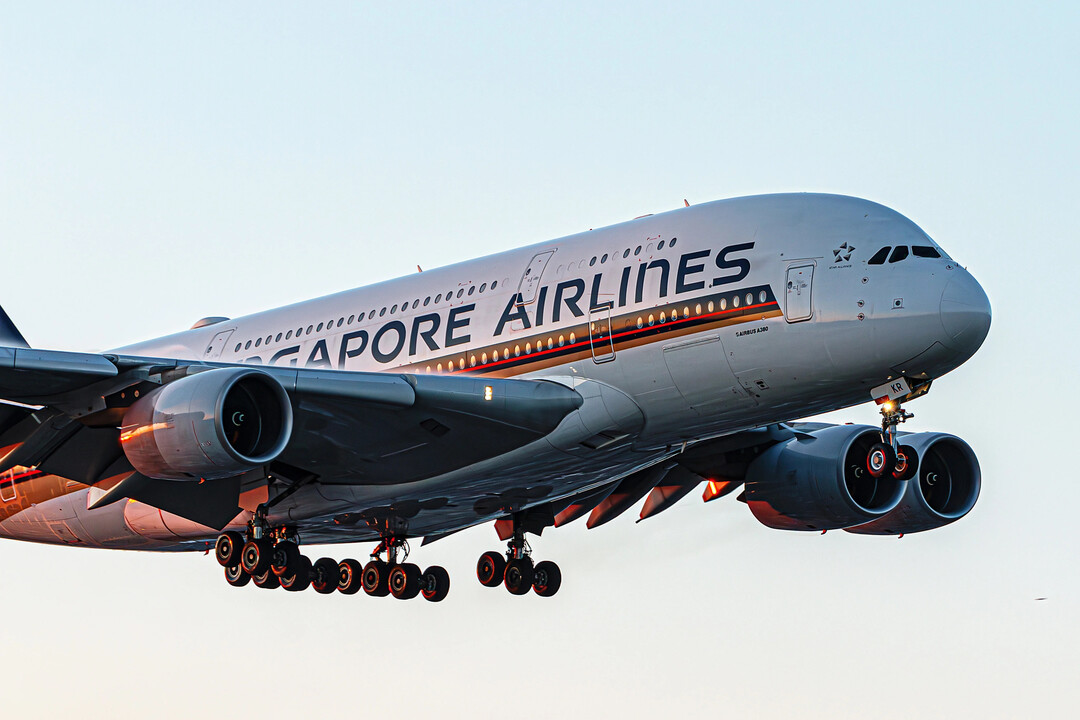
Tensions in the Middle East have escalated to their highest point after the United States launched airstrikes on Iranian nuclear facilities and Iran vowed retaliation. This has led to widespread disruption, with major global airlines fully suspending or rerouting their Middle East flights.
Singapore Airlines and British Airways Suspend Middle East Routes
Singapore Airlines, a leading Asian carrier, announced on Monday, June 23, the complete cancellation of its Dubai flights due to heightened tensions between the U.S. and Iran. Singapore Airlines stated that the situation is "fluid" and urged passengers to regularly check flight statuses. Similarly, British Airways canceled several of its Dubai flights, with some experiencing mid-flight diversions. One flight from London Heathrow Airport to Dubai diverted to Zurich, Switzerland, after entering Saudi Arabian airspace, while another returned to Heathrow after reaching Egyptian airspace.
British Airways also canceled its Doha, Qatar, flight on Sunday, June 22, and announced the suspension of its Bahrain route until the end of the month. British Airways explained that these measures prioritize the safety of its customers and crew. Other major European airlines, including Air France-KLM, also suspended or reduced their Middle East routes, with cancellations for Dubai and Riyadh flights on Sunday, June 22, and Monday, June 23.
Volatile Middle East Airspace: A Red Flag for Aviation Safety
With growing concerns of military conflict between the U.S. and Iran, Middle East airspace has become a high-risk flight zone. According to the flight tracking website Flightradar24, the skies over Iran, Iraq, Syria, and Israel appeared "empty," with very few aircraft, a stark contrast to usual. This is a serious concern, especially considering the region's importance as a major corridor connecting Europe and Asia since the closure of airspace due to the war between Russia and Ukraine.
Safe Airspace, OPSGROUP's flight risk monitoring website, warned on Sunday, June 22, that the U.S. attack on Iranian nuclear facilities could further increase risks for U.S. airlines in the region. Indeed, U.S. airlines had already temporarily suspended flights to the UAE and Qatar even before the airstrikes on Iranian nuclear facilities. American Airlines suspended its Qatar route, and United Airlines halted its Dubai route.
President Trump's Airstrike Announcement and Iran's Retaliation Threat
The current crisis was triggered by U.S. President Donald Trump's announcement on Sunday, June 22, that American bombers had attacked three major Iranian nuclear facilities. Trump warned of further attacks if Iran did not capitulate, suggesting direct U.S. involvement in the Israel-Iran dispute, contrary to his long-standing promise to avoid new wars.
In response, Iran threatened to attack U.S. military bases in the Persian Gulf and close the Strait of Hormuz, a key oil trade waterway bordering the UAE and Oman. Qatar hosts the region's largest U.S. military base, and Bahrain is home to the U.S. Navy's Fifth Fleet, meaning Iran's threats could directly impact these nations. In fact, on Sunday, June 22, Bahrain announced a shift to remote work for 70% of all government ministries and agencies, citing changes in the regional situation.
Oil Price Hike and Israel's 'Rescue Flights'
Another concern arising from the U.S. attack on Iranian nuclear facilities is the potential for a sharp rise in international oil prices. Higher oil prices are expected to increase aviation fuel costs, thereby raising airlines' operating expenses.
Meanwhile, Israel is expanding its "rescue flights" to assist its citizens and travelers stranded abroad. The Israeli airport authority announced that starting Monday, June 23, rescue flights would increase to 24 per day, with each flight limited to 50 passengers. Israeli airline El Al reported that approximately 25,000 people applied for departures on Sunday, June 22, alone.
This situation clearly demonstrates the impact of Middle East instability on the global aviation industry. Depending on further U.S. actions and Iran's retaliation, tensions in Middle East airspace and airline flight policies are expected to remain highly volatile. Airlines are closely monitoring the situation, prioritizing passenger safety, and it is crucial for travelers to check the latest flight information and prepare for potential disruptions.
[Copyright (c) Global Economic Times. All Rights Reserved.]




























